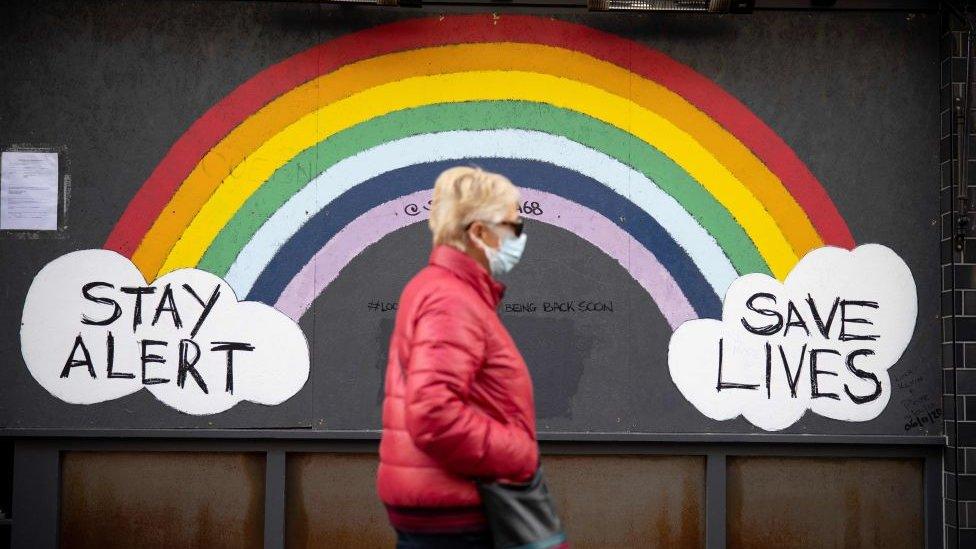Covid inquiry: Brexit 'affected NI Covid planning more than rest of UK'
- Published

The inquiry is into the government's handling of the coronavirus pandemic
Brexit had a bigger effect on pandemic contingency planning arrangements in Northern Ireland than elsewhere in the UK, the Covid inquiry has heard.
A lawyer for the Executive Office also said it was acutely aware of the importance placed by the inquiry on the impact made by a three-year absence of the Stormont executive.
The inquiry is looking at the government's handling of the pandemic.
It is currently holding public evidence hearings in London.
The inquiry will cover decision-making in Westminster and the devolved administrations in Northern Ireland, Wales and Scotland.
It is split into parts, with the first strand, known as module one, examining the resilience and preparedness of the UK.
It will also assess if the pandemic was properly planned for.
In his opening statement, David Sharpe KC told the inquiry that the model of devolution in Northern Ireland was "radically different" to elsewhere in the UK.
He said that the Executive Office had responsibility for "civil contingencies and emergency planning", which included the "wider consequences" of disease outbreaks such as Covid.
Mr Sharpe said it was relevant to mention Brexit as arrangements including Operation Yellowhammer had "very significant impacts on contingency planning arrangements across the UK".
He added that the unique circumstances in Northern Ireland made this more pronounced.
'Quest to learn'
Mr Sharpe said the impact of austerity was also important to the inquiry, with reduced staffing in the Northern Ireland Civil Service and issues over the sustainability of public service.
The barrister said the Executive office could guarantee it "would not be found wanting in responding to and comprehensively addressing changes recommended by the inquiry".
He said the written evidence of the bereaved families has had a "striking effect" on all who heard it, not least the Executive Office team.
"Those whose lives were irreparably damaged by the pandemic will rightly wish to know how future contingency planning in Northern Ireland can be designed to avoid any future failures.
"We share that quest to learn and will not be afraid to acknowledge when it is clear that government could have done better."
Related topics
- Published13 June 2023

- Published13 June 2023

